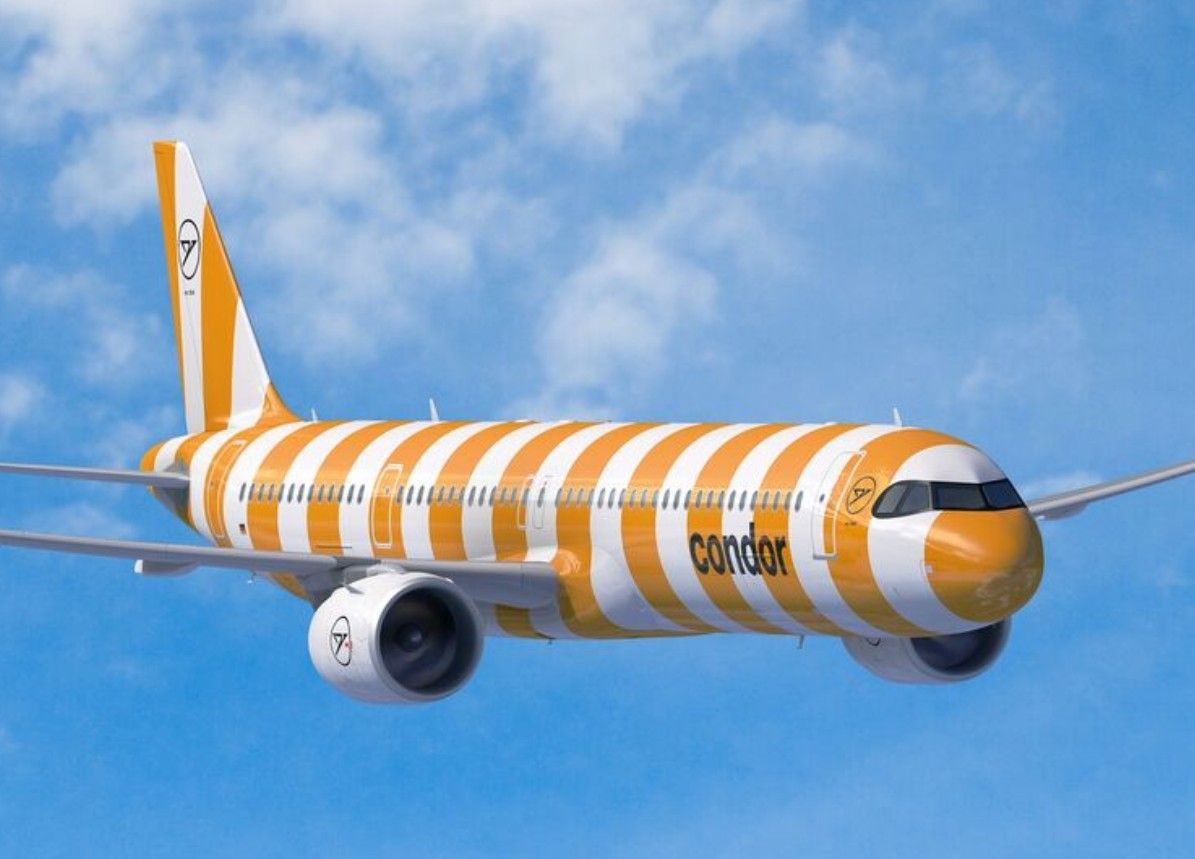Published on
November 6, 2025
German airline Condor concluded its thirty five-year legacy with the Boeing 757, bidding farewell with a commemorative final flight between Frankfurt, Germany and Vienna, Austria on November 5, 2025. This milestone marks the airline’s transition to an all-Airbus fleet, signaling a new chapter focused on sustainable tourism through modern, fuel-efficient aircraft. The farewell flight symbolized both nostalgia and future innovation in Condor’s expanding tourism network across Europe and leisure destinations.
The Final Flight: A Tribute to the Boeing 757
The final Boeing 757-300 service, operating flight DE757, took off from Frankfurt Airport at 10:27 local time and landed in Vienna an hour later. The event carried a festive and reflective atmosphere, with passengers, including airline staff and aviation enthusiasts, enjoying a meticulously prepared menu and commemorative gestures such as goodie bags containing Boeing 757 memorabilia.
After a celebration at Vienna Airport’s fire station, featuring live music and speeches, including remarks from Condor’s CEO, the aircraft prepared for its return flight. Departing Vienna at 14:28, the flight took a creative circular route back to Frankfurt, spelling “757” in the sky with its flight path while onboard passengers enjoyed a lively party ambiance with glowsticks and an onboard DJ. The aircraft touched down at Frankfurt at 16:16 local time, closing the Boeing 757 chapter in Condor’s fleet with heartfelt grandeur.
Significance of the Boeing 757 in Condor’s Operations
Since entering service with Condor in 1990, the Boeing 757, including both the-200 and stretched -300 variants, has been a workhorse for the airline’s leisure travel network. It was the carrier’s aircraft of choice for key tourist routes to destinations such as the Canary Islands, Egypt, and Mallorca due to its optimal seating capacity and economic performance.
The red and white striped 757-300, particularly the D-ABOM with two hundred seventy-five all-economy seats in its later years, has become iconic for Condor and its customers. This aircraft model was affectionately known as the ‘Flying Pencil’ for its slender fuselage and reliable service. The final retirement completes the phase-out process that throughout 2025 saw many 757s gradually replaced by newer models, with the last units continuing service until early November connecting German hubs like Düsseldorf and Frankfurt with Mediterranean and leisure airports.
Transition to an All-Airbus Fleet: Enhancing Sustainable Tourism
Condor’s retirement of the Boeing 757 aligns with its commitment to sustainability and modernization. The airline is now an all-Airbus operator, featuring aircraft families such as the fuel-efficient A320neo for short and medium-haul routes and the A330neo for long-haul services.
This fleet transition aims to reduce carbon emissions, noise pollution, and operating costs while enhancing passenger comfort. The modernized fleet supports Condor’s expanded network that includes new city connections within Europe, broadening its appeal beyond traditional holiday destinations and reinforcing its role in sustainable tourism growth.
Impact on Tourism and Regional Connectivity
The evolution of Condor’s fleet is crucial for advancing efficient, responsible air travel which directly benefits tourism across German and European leisure hotspots. By deploying Airbus aircraft with improved environmental footprints, Condor facilitates increased connectivity to popular tourist destinations such as Palma de Mallorca, Hurghada, Corfu, Gran Canaria, and Antalya, ensuring tourism can flourish while respecting climate goals.
The farewell to the Boeing 757 does not just symbolize an end but an upgrade in operational excellence that positions Condor to better serve travelers amid growing demand for greener tourism options. This fleet renewal endeavors to support the revitalization of regional tourism economies with modern air transport infrastructure.
Conclusion
Condor’s final Boeing 757 flight between Frankfurt and Vienna on November 5, 2025, was a landmark moment blending nostalgia with progressive change. As Condor fully embraces an all-Airbus fleet, it highlights its dedication to sustainable tourism and efficient travel across Europe and leisure destinations. This transition marks a new era of aviation excellence, providing enhanced services for tourists while advancing environmental and economic sustainability in the region.
